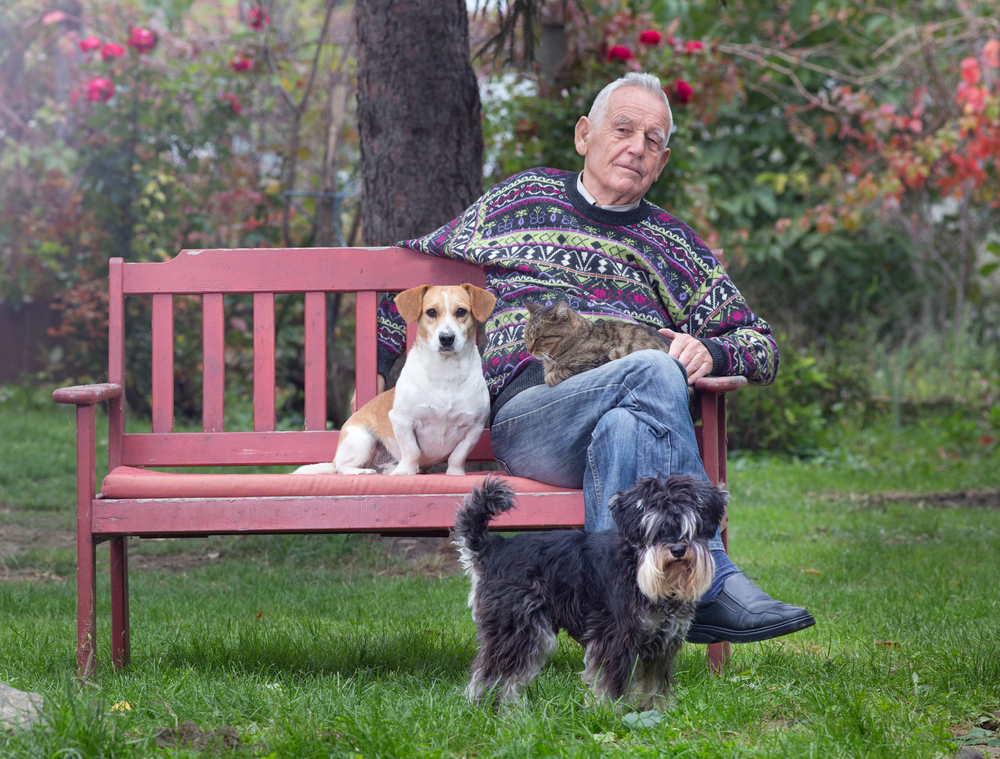<p style="text-align: justify;">Plenty of new programs have been developed, connecting well-trained dogs to elderly individuals who need assistance or companionship. These programs reflect the documented benefits of companion dogs for seniors. These positive effects of having a pet include social benefits, physical benefits, and mental and psychological benefits for the elderly.</p>
<h2 style="text-align: justify;"><strong>Social Benefits of Companion Dogs<br />
</strong></h2>
<p style="text-align: justify;">Having any type of pet, especially an interactive and well-behaved dog, helps seniors feel less isolated. This combats the feeling of loneliness that often plagues individuals as they stop going out regularly for work, or as they stop socializing as much.</p>
<p style="text-align: justify;">Dogs also listen and interact without judgment, and they are popularly known for providing affection to their owners. These positive behaviors from companion dogs help alleviate ill mental health and can even fight depression through pet therapy. With the right companion dog, elderly individuals are encouraged to talk about their feelings to their pets and to receive unconditional affection in return.</p>
<p style="text-align: justify;">The maintenance related to pet ownership also leads to social benefits. By going out to take daily walks, or by accompanying the companion dog to the vet, the elderly has more chances and reasons to connect with the rest of the world.</p>
<h2 style="text-align: justify;"><strong>Physical Benefits of Having a Dog<br />
</strong></h2>
<p style="text-align: justify;">As mentioned, having constant companionship with a dog can mean daily walks and other maintenance activities. This leads to a more active lifestyle for elderly individuals.</p>
<p style="text-align: justify;">Tasks such as dog feeding and grooming can also help tune and maintain fine motor skills. The simple act of petting a dog or playing with them also has positive physical benefits in relieving stress.</p>
<p style="text-align: justify;">Companion dogs have been known to help lower blood pressure and cholesterol levels. This leads to less sleep problems and medical conditions. It even prevents heart attack and stroke.</p>
<h2 style="text-align: justify;"><strong>A Number of Mental and Psychological Benefits</strong></h2>
<p style="text-align: justify;">Having a companion dog increases mental stimulation for seniors. In the two-way relationship of pet and owner, the companion dog also provides the elderly a sense of purpose. Because the dog is wholly dependent on the elderly person for food and grooming, the person is motivated and kept busy. Dogs are also known for their simple playful behavior, which helps seniors focus on the here and now. This reduces anxieties on their future health and finances.</p>
<p style="text-align: justify;">Aside from this mental stimulation, having a companion dog yields better emotional stability. Seniors are more likely to have better mental health, have lower incidence of depression, and become much happier with a companion dog.</p>
<p style="text-align: justify;">Written by The Village Of Bedford Walk, a senior living community in Columbia, MO.</p>

How Are Companion Dogs Helpful To Seniors?
